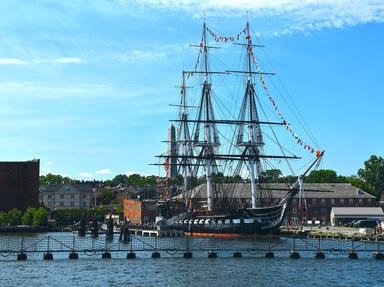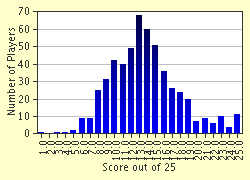Quiz Answer Key and Fun Facts
1. During which major European War did the War of 1812 take place?
2. Who fought in the War of 1812?
3. During which years did the fighting in the War of 1812 take place?
4. What was the first victory of the War of 1812 and who won it?
5. What major advantage did the British hold at the beginning of the War of 1812?
6. After the British won a bloodless victory taking a fort in Lake Huron, William Hull and the Americans took which city in Upper Canada?
7. The British had a lot of help in the War of 1812 from the Native peoples. Who was the great warchief leading the majority of the Natives?
8. At the beginning of the War of 1812, who was the British General who commanded the troops in Upper Canada?
9. During the War of 1812, the British, under General Brock, pushed American troops out of Canada and successfully captured which major American fort without a fight?
10. After the Fort Detroit was captured, the British had to hurry reinforcements quickly to which Canadian city, which was being attacked by the Americans?
11. Despite being outnumbered and outgunned, the Americans captured the high ridge over a town in the Niagara Peninsula. During a heroic counterattack on the heights, which British general was killed as he led the charge?
12. Many historians agree that if Brock had survived the counter-attack in the Niagara peninsula, that he would have gone on and conquered much of New York State.
13. After the Americans were repulsed at Queenston, the British began to push deeper into Michigan and confronted the Americans at which small town?
14. After the winter of 1812, the Americans went to work quickly and in April 1813, they captured and burned which Canadian town?
15. Which general led the attack on the town that was then (in 1812) the capital of Canada?
16. In the first major naval battle of the War, the Americans and British faced one another on which lake?
17. After their naval victory, the Americans advanced on land under which General?
18. The Americans advanced on land in September 1813, and took two major forts. What two forts did they take?
19. The Americans continued into Upper Canada, where in a major Battle they killed the Shawnee Chief, Tecumseh. What battle was this?
20. The Battle of the Thames took place near what modern day Canadian city?
21. On several other fronts, the Americans were advancing into Canada at a remarkable rate. However, they lost a surprising battle in Lower Canada. Which battle was this?
22. On several other fronts, the Americans were advancing into Canada at a remarkable rate. However, they lost a surprising battle in Lower Canada. Who was the American general commanding these troops in this devastating defeat?
23. The final American advance was along the St. Lawrence River, where they faced of against the British under Mulcaster at the ______ battle, a British victory?
24. The final American advance was along the St. Lawrence River, where they were defeated by the British under Mulcaster. The Americans were under the command of which general during this defeat?
25. Enraged by the burning of York, the British attacked which American city, with a view to razing it to the ground?
Source: Author
magicman23
This quiz was reviewed by FunTrivia editor
bloomsby before going online.
Any errors found in FunTrivia content are routinely corrected through our feedback system.

